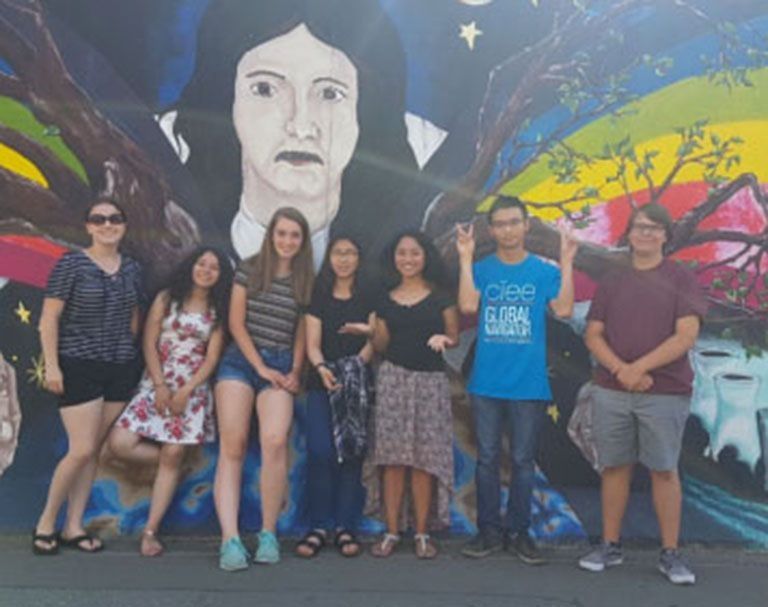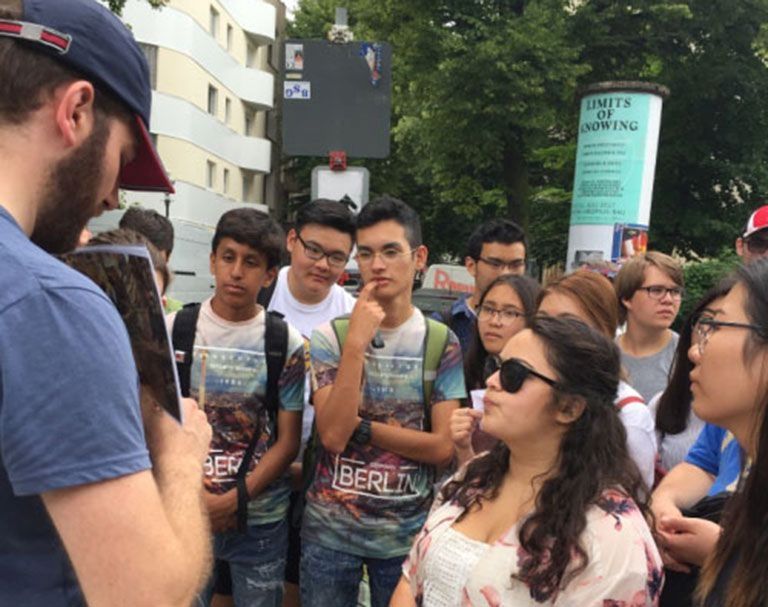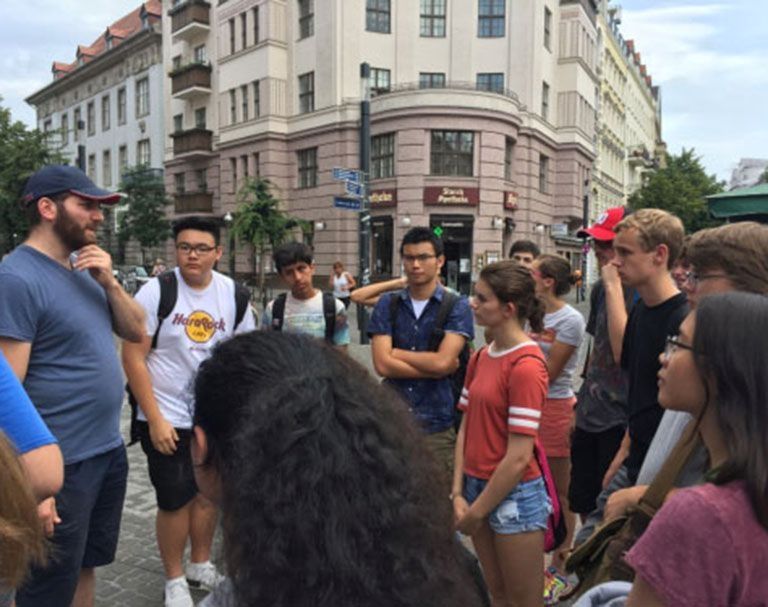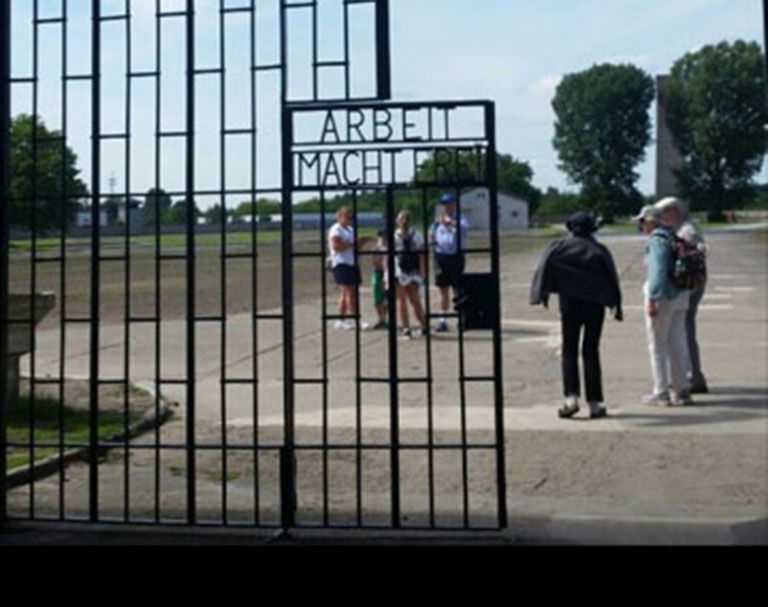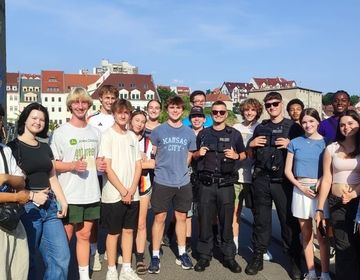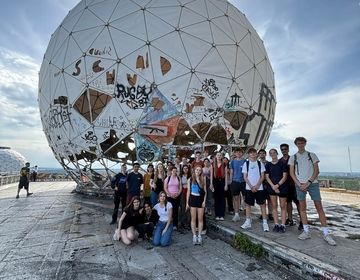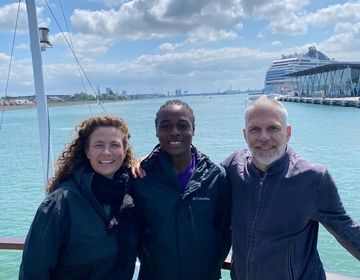Berlin Guest Blog by Anneke Oosten
Guten Tag from Berlin! A lot has happened in our second week here, which was met with much enthusiasm and energy all around.
On Wednesday our giant group took a video bus tour around central Berlin. We learned a lot about the history and culture of the area, with an emphasis on how the city center has changed over time (hint-a lot). We learned about how things were rebuilt after the war, and about the drastically different approaches East and West Berlin had towards architecture. We were also given an opportunity to visit the infamous East Side Gallery, which was decorated with beautiful, creative, and meaningful art. Much of it reflected the political orientation of people in the late eighties and nineties.
On Thursday we split into two groups to take a walking refugee tour. We learned about how Berlin is impacted by refugees, and how refugees are impacted by Berlin. It was given by actual refugees who told their incredible life stories. It was fascinating to hear another perspective of this ongoing issue, and learn about how the refugees that fled to Germany have added to its culture. The group I was in had a tour guide who had arrived in Germany with no knowledge whatsover of the language or culture. He had to learn how to communicate by watching and listening, and also had to support himself and save for his wife and children, who had to remain in Syria.
On Tuesday almost fifty students and Program Leaders went to Sachsenhausen. It was one of the first work camps created by the Nazis. Originally used for political prisoners, Jews, asocials, and other groups were added with it's expansion later on, and all were treated horribly and often used for slave labor. Most students had read and heard about the concentration camps of World War Two, but to see it in person is an entirely different matter. There is a certain gravity to walking on the land where others took their last steps, and I will never forget it. We are incredibly lucky to live in our time, where it is safer to practice religion and freely express political beliefs, and will never forget those who did not have those liberties. One of the hardest things for me is looking at my peers and wondering what we would have done had we lived then. As a Jew, would any of my friends have had the courage to stand up foir me? If the situation were reversed would I have had the courage to stand up for them?
Auf Wiedersehen,
Anneke Oosten
Related Posts
From CIEE
Our Görlitz Getaway
Students spent the weekend outside of Berlin and escaped to the quieter city of Görlitz! We left early Saturday morning and arrived just in time to explore the city for... keep reading
From CIEE
Teufelsberg Spy Tower
Last Thursday & Friday, our groups visited the Teufelsberg spy tower in Grunewald, in the far west of Berlin. We started the excursion with a hike through the forest to... keep reading
From CIEE
Gastfamilien in Berlin // Host Families in Berlin
We love our host families! We have three guest bloggers (Malcolm, Eliana and Tyler) from our Berlin Language and Culture Session I program who are sharing about their experiences with... keep reading
